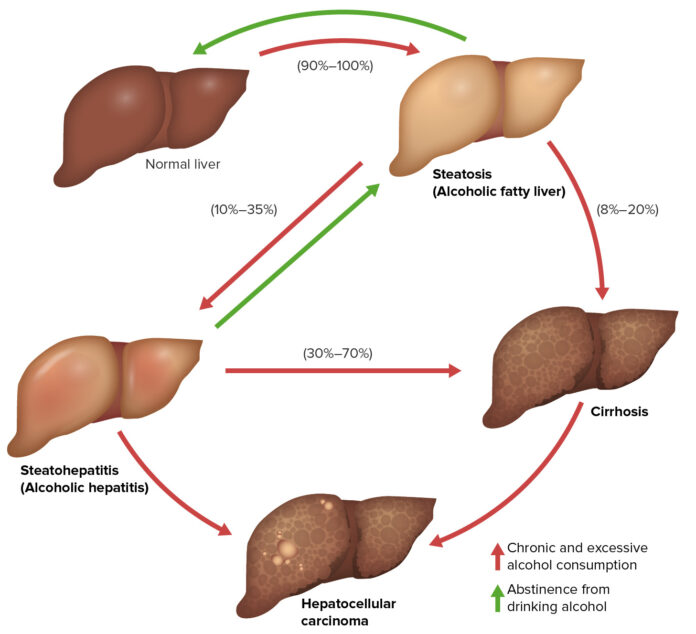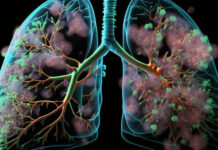Alcohol-Related Liver Disease (ARLD) is a condition caused by excessive and prolonged consumption of alcohol, leading to damage and inflammation in the liver. The severity of ARLD can range from fatty liver to more advanced conditions like alcoholic hepatitis and cirrhosis. Here’s an overview of ARLD, including symptoms, causes, treatment, and prevention:
Symptoms:
Fatty Liver Disease (Alcoholic Steatosis):
- Often asymptomatic in the early stages.
- Fat accumulation in the liver.
Alcoholic Hepatitis:
- Jaundice (yellowing of the skin and eyes).
- Abdominal pain and tenderness.
- Nausea and vomiting.
- Fatigue.
- Loss of appetite.
Cirrhosis:
- Advanced scarring of the liver tissue.
- Abdominal swelling (ascites).
- Easy bruising and bleeding.
- Confusion and cognitive issues (hepatic encephalopathy).
Causes:
Alcohol Consumption:
- A major risk factor; the risk increases with the amount and duration of alcohol intake.
- Individuals vary in their susceptibility to ARLD.
Genetics:
- Genetic factors may influence an individual’s predisposition to liver damage from alcohol.
Other Risk Factors:
- Poor nutrition.
- Gender (women are generally more susceptible).
- Obesity.
Treatment:
Alcohol Cessation:
- The most crucial aspect of treatment is stopping alcohol consumption.
- Medically supervised detoxification may be necessary.
Nutritional Support:
- Addressing nutritional deficiencies through supplements and a balanced diet.
Medications:
- Medications may be prescribed to manage symptoms and complications.
- Corticosteroids or other anti-inflammatory drugs for severe alcoholic hepatitis.
Liver Transplant:
- In cases of advanced cirrhosis, a liver transplant may be considered.
Prevention:
Moderation or Abstinence:
- Limiting alcohol intake can prevent ARLD.
- Abstaining from alcohol is essential for individuals already diagnosed with ARLD.
Healthy Lifestyle:
- Maintaining a healthy weight.
- Eating a balanced diet.
- Regular exercise.
Regular Health Check-ups:
- Periodic monitoring of liver function for early detection and intervention.
Educational Programs:
- Raising awareness about the risks of excessive alcohol consumption.
It’s important to note that ARLD is preventable, and early intervention can significantly improve outcomes. Seeking medical advice and support for alcohol-related issues is crucial for effective management and prevention of further liver damage.

































